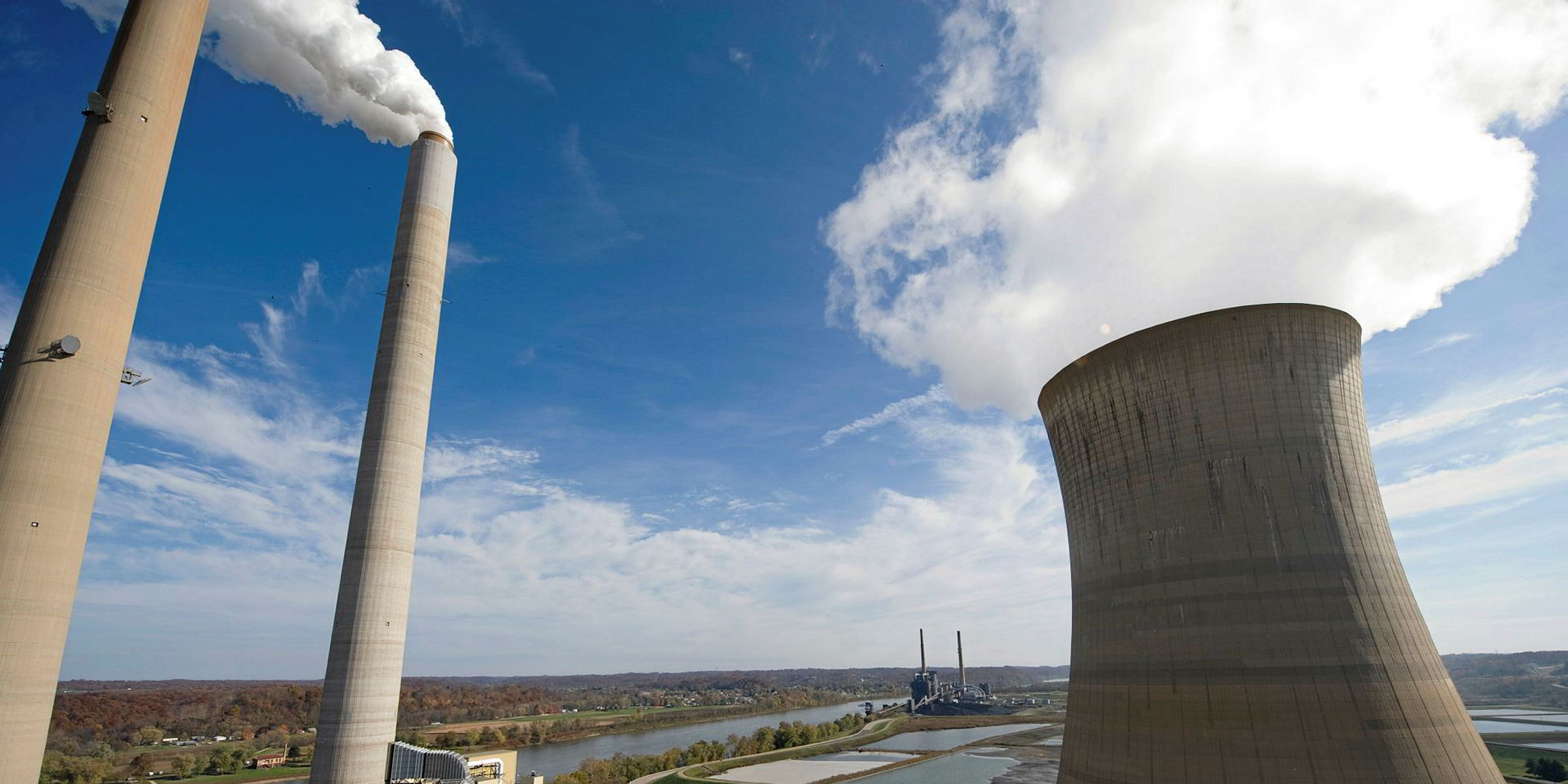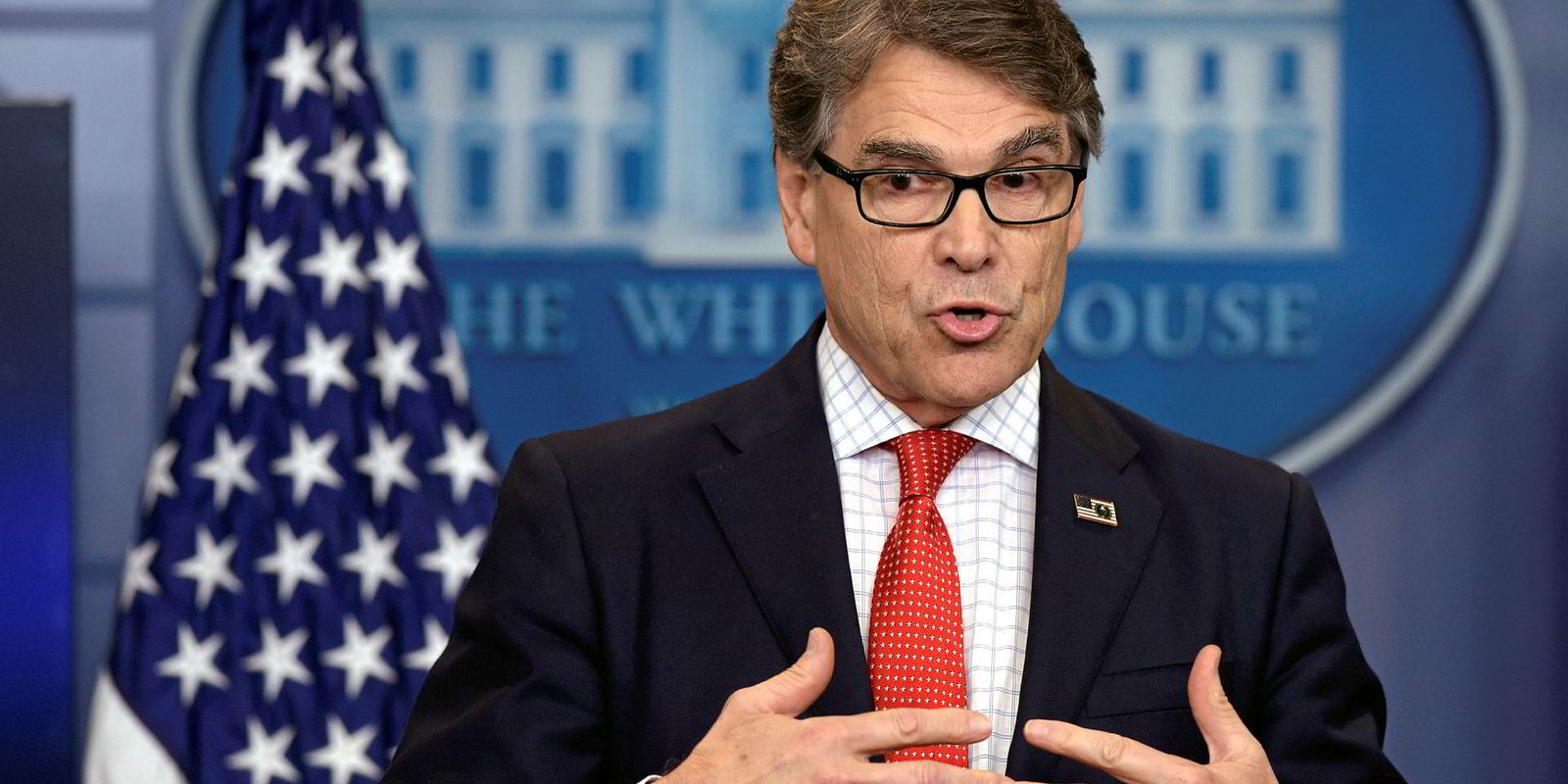US Energy Secretary Rick Perry on Friday publicly called for an overhaul of competitive electricity markets so that baseload generators like coal and nuclear plants are “fully valued” for the “reliability and resiliency” they bring to the grid, a move sure to spark a furious debate within the American power sector.
On the same day the US Energy Department announced another multi-billion-dollar loan guarantee for Southern Power’s long-delayed and hugely over-budget Vogtle nuclear expansion project in Georgia, Perry asked the Federal Energy Regulatory Commission (FERC) to establish new rules for wholesale power markets that would allow “fuel-secure” generators to recover their costs and remain profitable, regardless of market conditions.
Wrapping his proposal in concerns about the impact of natural disasters on US energy reliability following a recent spate of devastating hurricanes, Perry says special financial consideration should be given to power plants capable of maintaining a 90-day supply of on-site fuel – meaning coal and nuclear, and necessarily excluding wind and solar.
“A diverse mix of power generation resources, including those with on-site reserves, is essential to the reliable delivery of electricity – particularly in times of supply stress such as recent natural disasters,” Perry says.
The Energy Department cannot simply create such rules, but must instead push for action at the FERC – an independent agency that makes decisions on energy rules and projects affecting multiple states. The FERC is not obligated to agree to Perry’s request.
Perry asked the FERC to take “final action” on his proposal within 60 days – an extraordinarily ambitious timeline for such complex rulemaking.
Perry’s proposed rules would be a lifeline to ageing and increasingly uncompetitive coal and nuclear plants, many of which have become money-losers in competitive electricity markets like Texas’ ERCOT or the East Coast’s PJM Interconnection amid the rise of lower-cost gas and renewables.
But such rules would be among the most significant changes to US wholesale power markets in years, and undercut the free-market theories that led to the deregulation of many US electricity markets in the first place.
In an ironic twist, Perry’s request puts the renewables industry in the position of arguing against subsidies for particular forms of generation, and in favour of the economic free-for-all long espoused by the fossil fuels sector.
“We worry today’s proposal would upend competitive markets that save consumers billions of dollars a year,” says Amy Farrell, senior vice president for government and public affairs at the American Wind Energy Association.
“The best way to guarantee a resilient and reliable electric grid is through market-based compensation for performance, not guaranteed payments for some, based on a government-prescribed definition,” Farrell says.
Todd Foley, senior vice president for policy and government affairs at the American Council on Renewable Energy, notes that Perry’s claims about baseload generators being able to withstand natural disasters does not hold up to recent experience.
“On-site fuel power sources have not helped with severe weather events such as the Polar Vortex, where coal piles froze, Hurricane Harvey, where coal piles flooded, and the Fukushima event, where the nuclear plant ceased to operate,” Foley says.
“We’re concerned this proposed rulemaking uses grid resilience as an excuse to prop up plants that have not been shown to be needed, preventing consumers from buying the power they want to buy,” he says.
The Trump administration has promised to defend the ailing US coal-extraction industry and conventional electricity-generation sector, and Perry’s strategy for doing so seems largely to have settled on defending baseload generators in the name of grid resiliency.
The strategy is rife with contradiction and irony, not least because the chief culprit behind US coal-plant retirements in recent years has been the cheap natural gas that has resulted from the fracking boom – another sector the Trump administration is keen to support.


